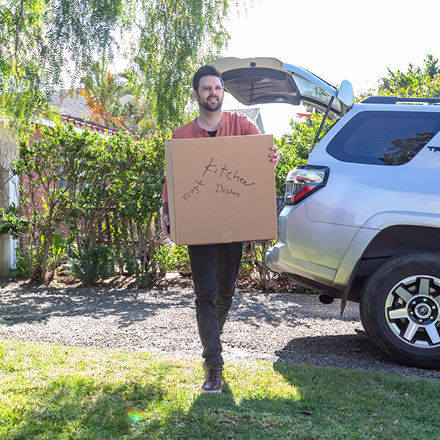- Insurance Guide
- Property Insurance
- Apartment vs. Condo
What is the difference between renting an apartment or a condo?

The rental market includes so many housing options. It can be challenging to pick the one that is right for you. One way to get started is to decide if you want to rent an apartment or a condo. Learning the basic differences between these two styles of housing may make your search and your selection easier.
Generally, a condo (or condominium) is owned by an individual owner who then rents it out. The individual owner becomes the landlord, and the renter is the tenant.
Apartments are often owned by large management companies who may rent out multiple units in one building or an entire complex of units. Even if an apartment building is owned by a single owner, a management company generally runs the building and handles day-to-day maintenance and operations.
Comparing condos vs. apartments
When looking at condos and apartments, there are several areas you may want to compare them.
1. Price
The prices for apartments and condos are generally similar, especially if you are comparing units of similar size and age. Condos may include homeowner’s association (HOA) fees in the cost of the unit. These fees cover the maintenance and upkeep of the exterior of the buildings as well as the amenities in the building, which may include a gym, pool, elevator, or other services. Even with the HOA fees built in, the prices for apartments and condos are often in the same range.
2. Floor plans
Whether you are in a large complex or a smaller building, apartments generally have similar layouts across all the units. There may be 2-3 slightly different options, but most of the apartments will have similar designs and finishes. The primary difference you will see is unit size, with options including studios and one-bedroom, two-bedroom, and three-bedroom units. In a condo unit, you may get more variability in layout and design. Since the units are individually owned, the property owners have far more control over how the interior of their units are designed. You may find higher end finishes as well. Owners may have previously lived in their condo before renting it out, so the units may include custom upgrades. Some condos also include small yards or courtyards.
3. Ownership potential
Apartments are often owned and managed by a large company, and they are not ever available for purchase individually. On the other hand, condos may eventually come up for sale, and you may have the opportunity to buy them in the future. However, this could also mean that if the owner decides to sell the condo you are renting, and you do not want to buy it, you may have to move.
4. Maintenance
Apartments are typically managed by professional companies and often have 24-hour maintenance services available on site. In a condo, you will often have to report needed repairs to the owner, who will have to contract with individual tradespeople to have repairs completed. Therefore, repairs in a condo may take longer than in an apartment.
Coverage for your property and possessions
Regardless of the type of unit you are renting, it is important to get coverage for yourself and your belongings with renters insurance. Renters insurance covers your personal belongings in a rented home or apartment and could cover you against liability.
The rental insurance market includes a variety of coverage options, so you can select the one that is right for you. In some states, a landlord or property management company can require that renters have a certain amount of insurance coverage. This requirement will be spelled out in your rental agreement.
When it comes to renters insurance coverage, personal items like clothing, electronics, furniture, and jewelry could be protected. Damage caused by theft, vandalism, overflowing water, and natural disasters like fire, lighting, windstorms, or hail are generally covered as well. The cost for renters insurance may be less than the cost to replace your belongings out of pocket.
Whether you select an apartment or a condo, you may want to make sure all your belongings are covered by renters insurance before you make a move.
Learn more about renters insurance and get a free quote in minutes.



